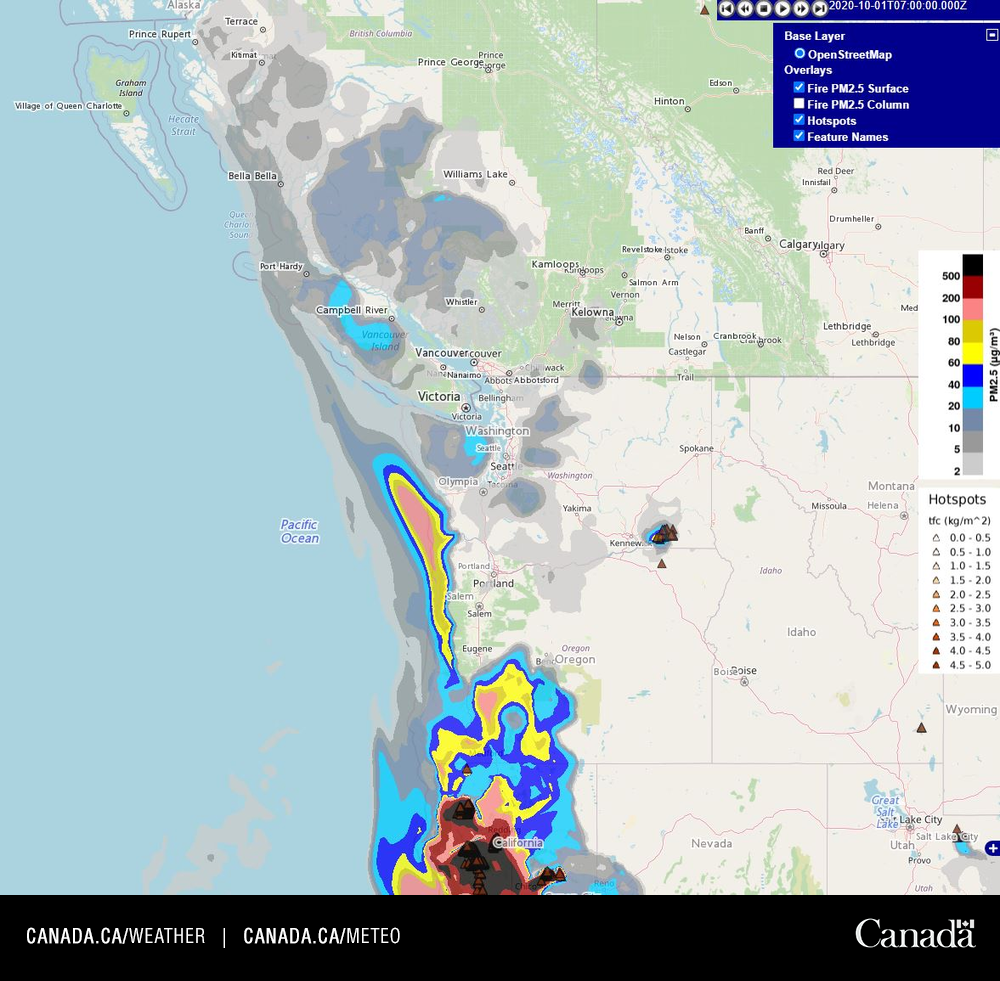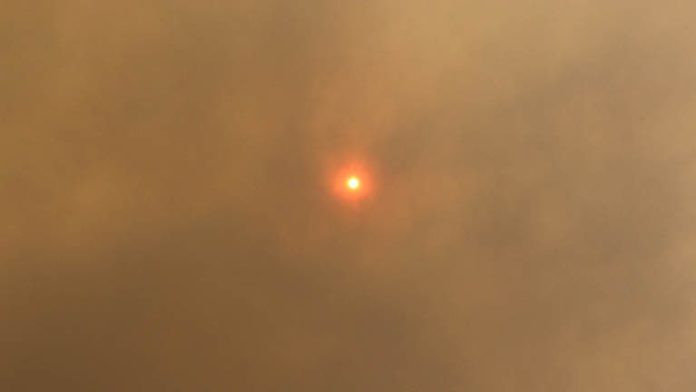A fresh bout of wildfires in Northern California has meteorologists in B.C. monitoring weather patterns for more smoke on the horizon.
Projections and modelling forecasts show that fires that erupted in California’s wine country early Sunday morning and burned through 11,000 acres in just 24 hours might be the cause of more smoke clouding the coast of British Columbia over the next few days.
In a phone interview with Victoria Buzz, Environment Canada regional meteorologist Armel Castellan says he has been collaborating with counterparts in Vancouver and Seattle to monitor the haze.
“We’re looking at earliest being Tuesday evening, or Wednesday morning, to get some of the smoke coming up the coast,” said Castellan.
“It’s mostly going to be offshore, and it will be coming inshore and that could happen in that time frame.”
According to Castellan, the concentration of smoke particulates expected to clog up the air in the coming days is not being modelled yet due to uncertainty surrounding how much the wildfires in California are expected to grow.
However the smoke haze is expected to last for just two to three days, compared to over a week of prolonged high risk air pollution B.C. saw earlier this month.
“In this case it’s most likely that we’re not going to see concentrations that we saw a week and a half ago and it doesn’t look like we’re going to see it for nearly the same period of time,” added Castellan.
“But as a result of having more pollution in the air, fog is easier to form. Even if that’s not a health hazard to the same extent we saw last time, it could have other implications like reduced visibility affecting transportation like aviation, marine transport and vehicles on the road.”
Most of the smoke is expected to bypass Vancouver Island and B.C.’s south coast due to expected wind patterns.
However residents are advised to stay tuned to the Air Quality Health Index ratings that are updated by Environment Canada twice a day to manage their own health risks.
“The possibility is there that these fires get so big that there’s a big enough concentration of particulates that it does come into our air shed again,” said Castellan.
Although concentrations of particulates are not expected to be particularly strong, the level of air pollution would still be higher than what coastal BC residents are accustomed to.
This projected modelling diagram up to late Wednesday evening from Environment Canada shows the smoke plume entering the BC coast and snaking all the way up to the north coast:

In addition to haze, Castellan says that temperature forecasts for this week in Victoria may break some records for warm early fall weather in the region.
The weather agency is forecasting up to 23ºC highs this week.
“The pattern is such that we could see the smoke come in and once it’s there, it’s a matter of whether or not we can get those pacific impulses to come in and sweep that away,” said Castellan when asked to predict how weather patterns might clear some of the smoke away later this week.
“The earliest we could see that happening is probably Friday where things change a little bit.”
The 2020 wildfire smoke season has been the worst B.C. has experienced in at least the last two decades, in terms of particulate concentration average over a prolonged period of time.
Climate change is a major factor and is widely expected to result in more severe wildfire seasons in the future as the weather becomes more and more polarized.
Castellan adds that warmer summers exacerbated by prolonged periods of drought will create conditions for forests to be susceptible to explosive wildfire growth.
At the other end of the spectrum, meteorologists also expect more intense, major Pacific storms to plague the coastline, due to more moisture being in the atmosphere when it gets hotter.
While we won’t see extreme weather events every year, Castellan says they are expected to become more frequent, in part due to the anthropogenic elements that cause climate change.



